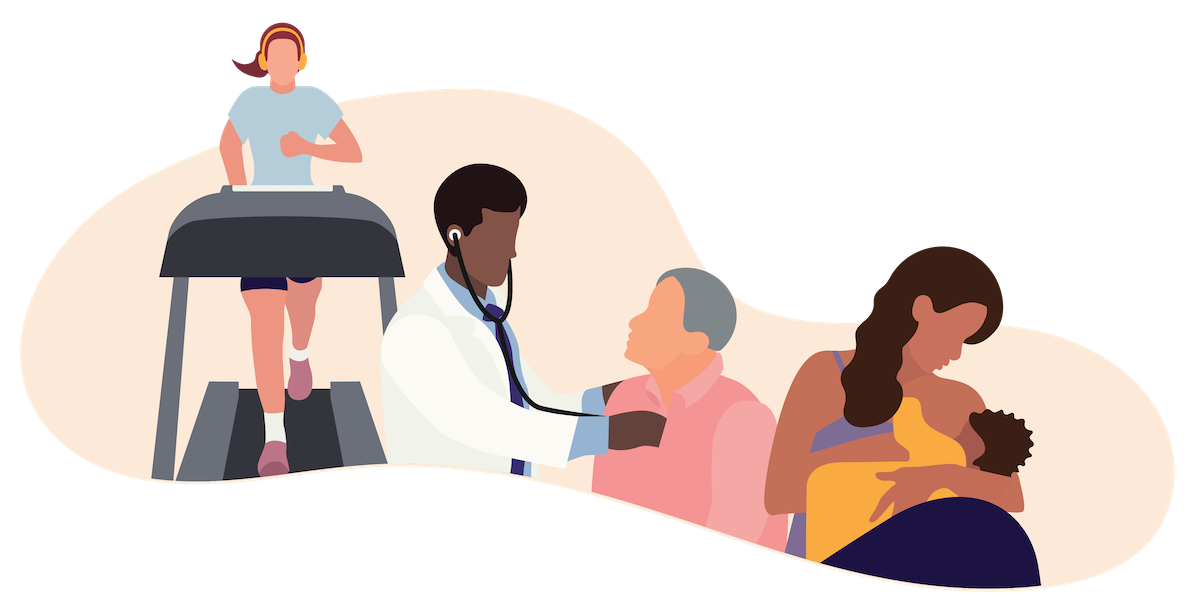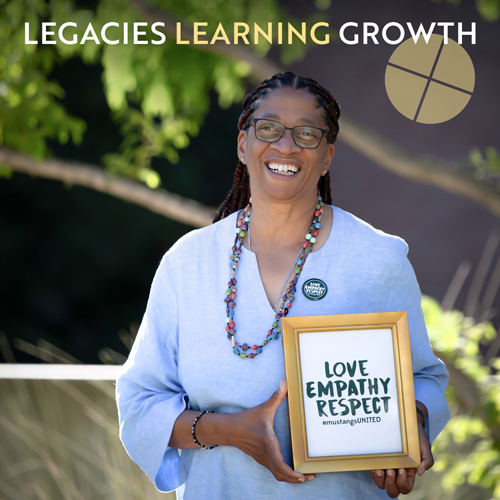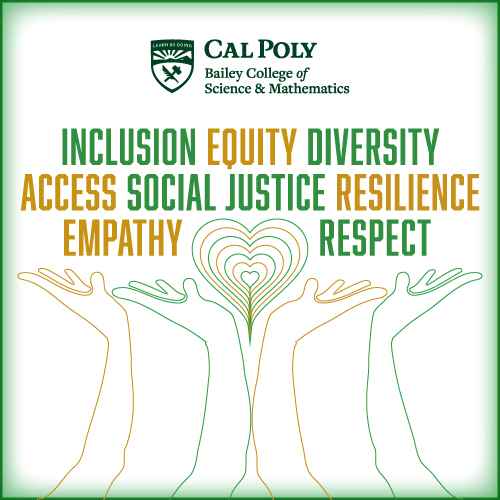Be Well

Nothing is more intrinsic to our everyday lives than our health. We spend a lot of time and energy trying to make healthy choices for ourselves and our families. The most reliable information about what’s good for us comes from scientific research.
Faculty, staff, and students at Cal Poly’s Center for Health Research are dedicated to helping all of us make better decisions about our health. Through building the basic knowledge about how to stay healthy, they’re answering the questions we all ask at some point.
How do I maintain a healthy weight?
 Faculty, student and staff researchers at the Center for Health Research focus on multiple aspects of one of the U.S.’s main health concerns: obesity. Obesity increases the risk for heart disease, stroke, type 2 diabetes, cancer, sleep apnea, osteoarthritis and several other health conditions.
Faculty, student and staff researchers at the Center for Health Research focus on multiple aspects of one of the U.S.’s main health concerns: obesity. Obesity increases the risk for heart disease, stroke, type 2 diabetes, cancer, sleep apnea, osteoarthritis and several other health conditions.
Professor Suzanne Phelan, the Center’s director, led a study of almost 5,000 members of WW (formerly Weight Watchers) who reported losing an average of about 50 pounds and kept it off for more than three years. The research team looked at 54 behaviors related to successful long-term weight management. Findings were published in the journal Obesity.
Compared to a group of 500 people with obesity whose weight stayed constant, those who maintained long-term weight loss reported several daily habits that contributed to their success. These habits included choosing healthy foods, tracking food choices, and staying positive in the face of challenges.
-
Strategies for Weight Loss Success
- Record what you eat each day
- Keep lower-calorie foods more accessible
- Practice self-kindness and mindfulness
What’s the best way to feed my baby?
Infant Feeding Recommendations
- Breastfeed as much as possible
- When bottle-feeding, be aware that overfeeding is more likely
- Pay attention to babies' hunger and fullness cue, the best guide for how often and how much to feed
Infant overfeeding is widely recognized as a cause of excess weight gain in children zero to two years old. Infants who gain too much weight are at risk for obesity and metabolic problems later in life. To help prevent overfeeding, Professor Alison Ventura and her students in the Kinesiology and Public Health Department study how moms and babies interact during feeding sessions.
Babies show that they’re full with actions such as turning away from the nipple or falling asleep. To learn how mothers can better respond to their babies’ hunger and fullness cues, Ventura has tested many factors, such as bottle type, that affect how well mothers pay attention to those cues.
In a new project, Ventura and her students will study how feeding interactions develop over time and in different situations. They’re teaming up with researchers at the University of Michigan, who will film bottle-feeding and solid food feeding sessions during the infants’ first year. Cal Poly students will review the recorded sessions and code the behaviors of both mother and baby. Researchers can then assess which patterns lead to healthy feeding and which lead to overfeeding.
How can I reduce screen time and get moving?
Get Up and Get Moving
- Break up sitting every 20-30 minutes
- Replace 1 hr./day of sedentary time with activities such as slow walks, housework, or gardening
- Engaging in more intense activity such as a brisk walk or other exercise brings additional health benefits
Researchers will test three ways to encourage people to change their behavior: receiving text messages that give them immediate feedback on their screen time, getting locked out of further screen time or earning back screen time through exercise. The goal is to reduce sedentary screen time by 50%.
The research team will also track how less screen time affects physical activity level, diet, mood and disease risk factors. Their results will inform public health guidelines for the country.
How can we increase access to health care?
-
Accessing Mobile Health Unit Services
- Patients using the mobile unit may receive care in English, Spanish, and Mixtec, the language of one of the indigenous peoples of southern Mexico.
- The Calendar services can be found at healthresearch.calpoly.edu/mobile-health-unit-calendar
Cal Poly’s Women and Infants Mobile Health Unit provides free medical care to uninsured women and infants in Santa Maria and Guadalupe on California’s Central Coast. Services include obstetrics and gynecology, women's health, family medicine, nursing, and pediatrics.
Research indicates that mobile health clinics have helped prevent costly emergency room visits and improved access to care. Providing prenatal care on Cal Poly’s mobile unit may lead to fewer pregnancy and delivery complications.
The mobile unit also offers training opportunities for Cal Poly students interested in the health professions. Students Learn by Doing as they offer health assessments and referrals in partnership with doctors, nurses and social workers. These and other local health professionals staff the unit through a partnership with the SLO NOOR Foundation.
How can I support the Center for Health Research?

By giving to the Center for Health Research, you will be part of the groundbreaking research and healthcare facilitated by talented, passionate faculty and students. The Campaign for the Center for Health Research is an opportunity to support the expansion of the clinic and relocation to the Cal Poly Tech Park where patients and research participants have easy access and researchers can work together in a shared space. State-of-the-art labs, treatment rooms and clinical research facilities are crucial to the future success of this prolific research center.
Your support will contribute to advances in preventing obesity, diabetes, cardiovascular disease and cancer and improving family health. One-time gifts of any amount, multi-year pledges or including the Center in your estate planning all make an important impact.
For More Information
Contact Kathryn Dilworth, assistant dean for advancement, at 805-756-1040 or kdilwort@calpoly.edu to discuss a gift.
Read more about Healthy Bodies in Bringing It, Anatomy of a Discovery and Math is Good For You







